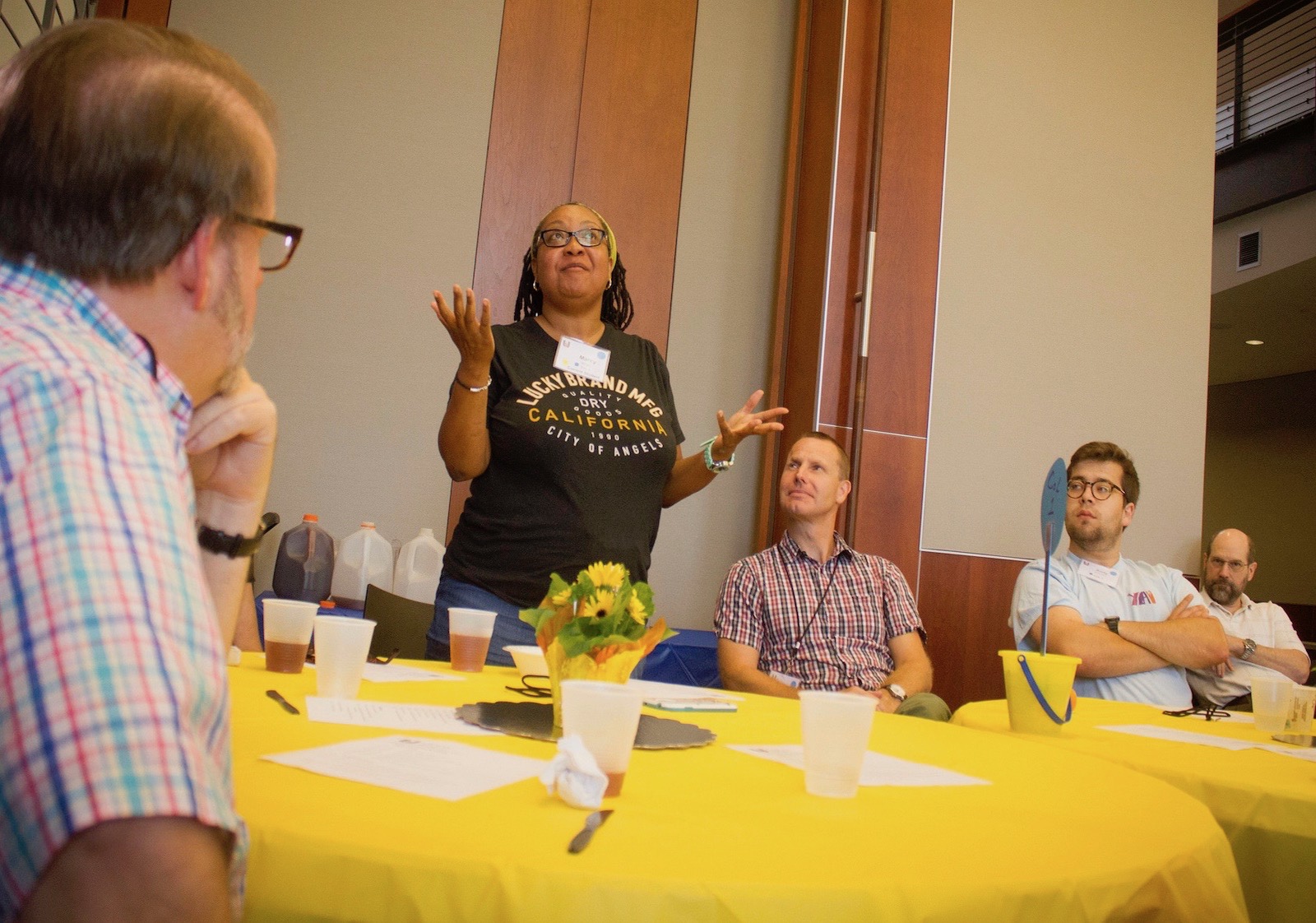6 things about Marcy Wright’s summer break

During the summer months, our students work, intern, or study in a variety of settings, often earning course credit and learning what it means to be the Church in the World. Some stay near campus, while others move away for a few months. On the blog this summer, we are featuring some of our students and the work they’re doing. This week we feature M.Div./ M.A.C.E. student Marcy Wright. This series wouldn’t be complete without a glimpse into the quintessential seminary experience: summer language.
By M.A.C.E. / M.Div. student Rosy Robson
Rosy Robson: Where are you and what are you doing this summer?
Marcy Wright: This summer has shaped up to be extremely busy. I’m taking Greek, which is an intensive version of the course that’s offered in the fall. Seven weeks, five days a week, roughly three hours per day. Very intense! I’m also serving as the Chapel Coordinator here at the Richmond campus for the summer and working 12 hours a week at the library.
RR: How does this summer’s job/activity/study fit into your larger education at Union?
MR: Greek has been fascinating. Studying this ancient language day in and day out in such a deep and concentrated way has given me such an appreciation for how enriching and empowering it is to become intimate with the language that was originally used to communicate the words and stories of Jesus. I felt the same about studying Hebrew last year. Learning the original languages just adds richness to study of scripture and the narratives of biblical faith that we have been told since we were children, narratives that we continue to share today. Our Greek professor, Megan Strollo, sent the class an article before class started in July in which the author declared that as ministry leaders, one of our most important callings is to be “ministers of the word.” The author emphasized that study of languages helps us to think textually, “understanding the way words work, how their meaning is determined (or not determined) and the importance of context.” All important things as we are being prepared to share God’s Word with the world.
RR: Why is this job/activity/study important for the future of the church?
MR: As insightful and enriching as Greek has been, I’ve also enjoyed serving as Chapel Coordinator and my weekly participation in helping shape the worship experience for those gathered at the Richmond campus this summer. Each week I learn anew what it means to celebrate being God’s people, called by God to serve God and the world. We so often hear about the decline of churches and ministries. I have been so appreciative of the opportunity to participate weekly in the telling of call and faith stories of members of our community and how those stories are a part of God’s story and the work that God is doing in the world through and among us. You can’t listen to these stories and think decline. You can only rejoice and celebrate that God and the church are still at work equipping people for ministry work for a long time to come.
RR: What exciting insights or learnings have you gained so far?
MR: Frankly, I had no idea how much work went into planning the worship service each week. It’s been great working with Michelle Freeman Owens, our seminary chaplain and everyone (faculty, staff, and students) in worship planning as we develop liturgy, think of creative ways to share scripture readings and select worship music. It’s been a truly collaborative process that has been a joy to be a part of each week.
RR: What are you reading or watching this summer?
MR: I’ve been reading “Birthing the Sermon: Women Preachers on the Creative Process,” by Rev. Dr. Jana Childers. It’s a collection of essays by women pastors on how they bring a sermon to life –from the initial idea to the blossoming of the idea into a narrative that illuminates God’s Word for people today, and finally to the delivery of the sermon and what comes after. It’s been so enlightening to read about how these women, each with different creative impulses, spiritual practices, and sources of inspiration bring the Word to audiences in various settings. Following each essay is a sermon preached by the author. I have used the book to consider what my own sermon preparation process will be, especially since I will be taking Preaching and Worship in the fall. I’m so very excited for that class.
RR: What is your favorite summertime treat?

MR: I love ice cream in every season, so lots of that. Plus, I love all the summer fruits/vegetables, including corn (on-the-cob is best), watermelon, peaches and my favorite, tomatoes. So much of God’s bounty to indulge in and enjoy during this season.
Related Stories
- 5 things about Russ Kerr’s summer break
- 6 things about Marina Ghaly’s summer break
- 4 things about Sam Shields’ summer break
- 6 things about Alex Abdalla’s summer break
- 6 things about Katie Thomison’s summer break
- 6 things about Bruce McVey’s summer break
- 6 things about Andy Spaulding’s summer break








